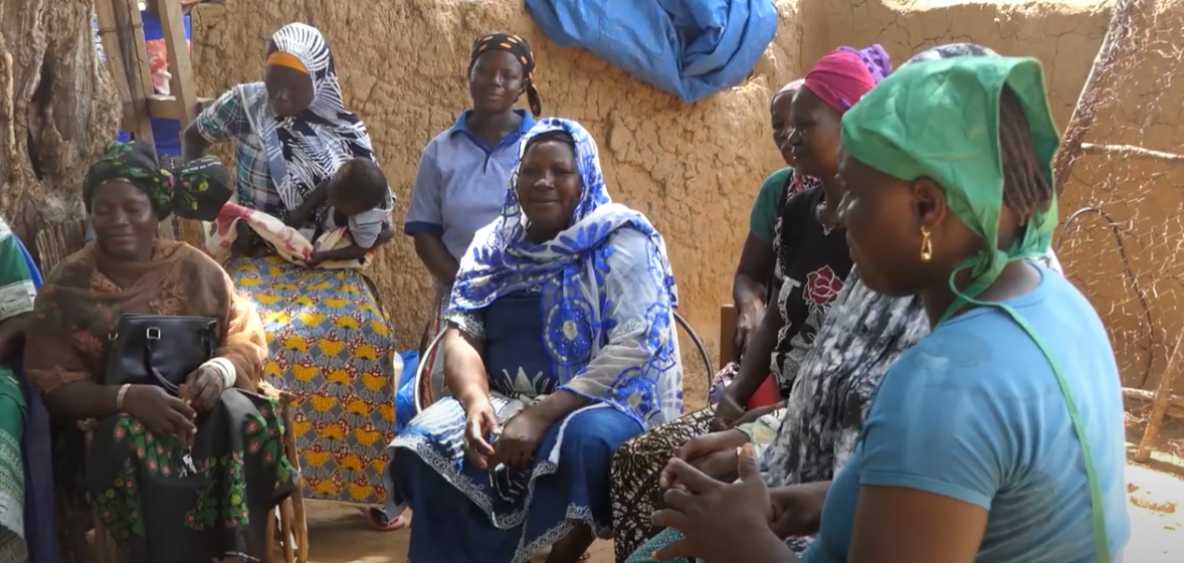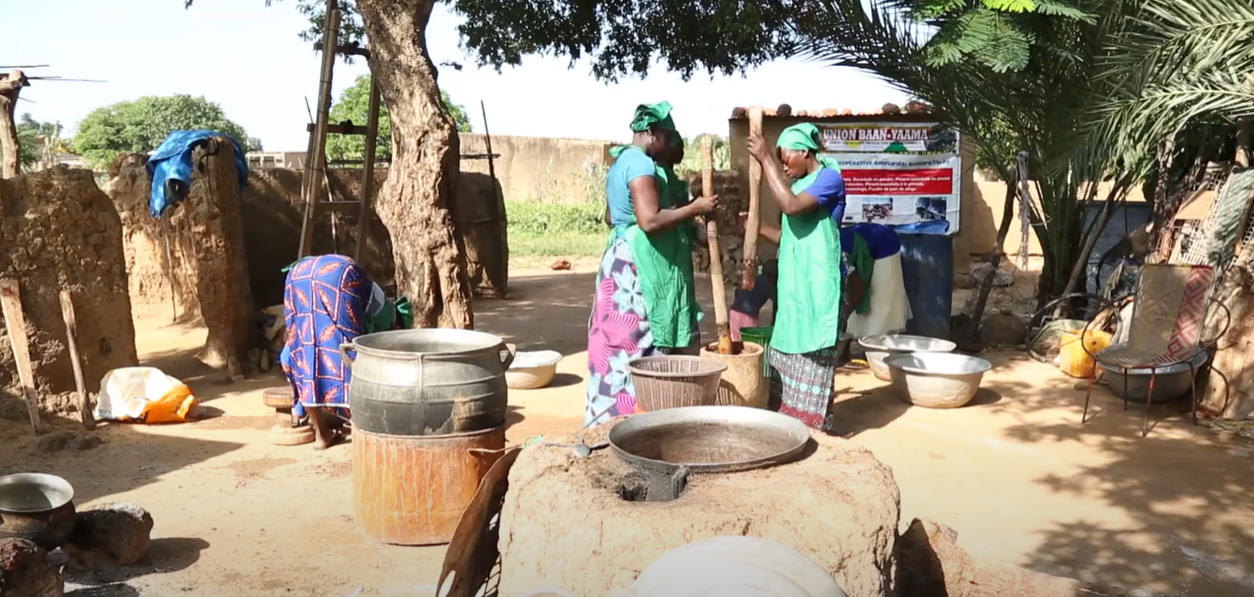 Members of Tin-Fii Soumbala Cooperative. Credit: Neer-Tamba Project
Members of Tin-Fii Soumbala Cooperative. Credit: Neer-Tamba Project Women’s groups in the RFS programme have shown time and again that supporting their activities is an investment in scaling the benefits towards a more resilient food future.
In Burkina Faso, widespread land degradation and increasing temperatures challenge the agricultural sector that is already struggling to feed the nearly 20% of the population that is severely food insecure.
At the Resilient Food Systems (RFS) programme, enhancing food systems to become sustainable and resilient to shocks is just part of the package, but better when entire communities can participate. This is why gender-responsive activities – implying action, not just sensitivity, towards women’s equal participation – are such an integral theme to our actions on the ground.
RFS recently launched a series of videos on our YouTube channel, highlighting some of the unique activities underway in Burkina Faso. Some of the videos show the impact of investing in women’s agricultural groups and how a little can go a long way. A commonality in the videos is the difficulty that these groups face in accessing finance to scale their activities. But this isn’t a novel finding.
Despite being hard-working anecdotally, women’s agricultural groups in sub-Saharan Africa are often characterised as having poor access to resources, credit and support for their work.
So where is the disconnect?
One reason for this, as raised by Florence Lompo-Yonii, Treasurer of the Tin-Fii Co-Operative in Eastern Burkina Faso, is that their group had no collateral for accessing a loan. Even though women have land rights under the constitution of Burkina Faso, this is rare in practice, so it’s not uncommon for women’s groups to lack assets that make them desirable borrowers in the eyes of banks. But when given the chance to show their determination under the RFS project Participatory Natural Resource Management and Rural Development Project (Neer-Tamba), led by IFAD, the Tin-Fii co-operative exceeded expectations.
In 2019, Neer-Tamba supported Tin-Fii with 1 600 000 West African CFA Francs (about 2 500 USD) to invest in their key product, soumbala, which is a fermented seed paste.

The co-operative started off by purchasing 10 bags of seed and has now scaled up to where Florence Lompo-Yonii is producing nearly 10 bags of cowpea per year on her own. That brings in about 1 000 000 Francs to her household that simply wasn’t there before.
Other benefits include value-adding activities, product certification to enter international markets, and re-investment into the cooperative through the construction of a training and production centre.
“Sometimes [customers] can come and say that they want soumbala. If it turns out that we don’t have it, we’ll go take it from someone else. But to go take it with someone else, you have to be sure that the soumbala is clean, that it is good,” said Florence in an interview. “So to be able to do that, we asked that other soumbala makers get trained too so that if someone comes to us and finds that there is no soumbala, we are comfortable going to get it from others, we know that the soumbala we are taking from them for our customers has no problem.”
The determination shown by the Tin-Fii cooperative is seeing their community not only increasing their resilience, but also safeguarding this cultural staple of in Northern Burkina Faso.
Subscribe to our monthly newsletter to receive updates on stories directly from the field across all our projects, upcoming events, new resources, and more.